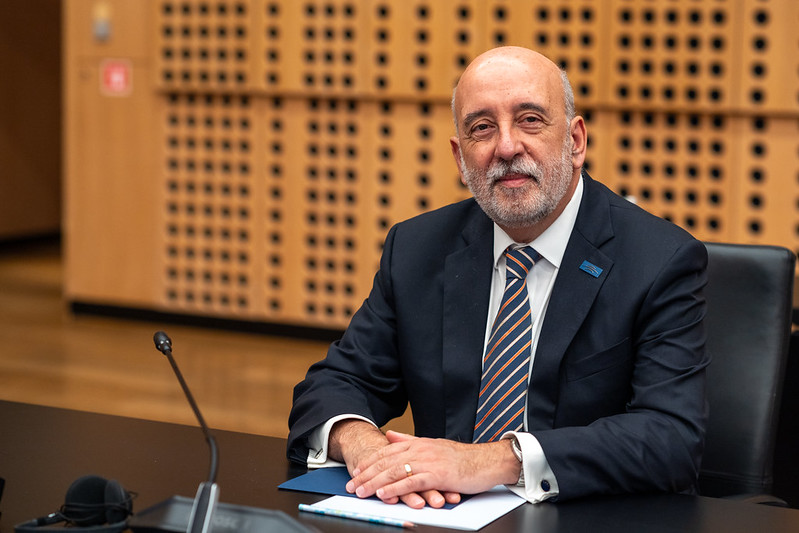By Marta Vilar – MADRID (Econostream) – European Central Bank Governing Council member Gabriel Makhlouf said on Tuesday that monetary policy would need ‘careful calibration’ given the effects of shocks related to fragmentation.
In a speech at the National Association for Business Economics International Symposium, Makhlouf, who heads the Central Bank of Ireland, said that ‘monetary policy must adapt to the new nature of supply shocks by geoeconomic fragmentation.’
Given their size, scale, more persistent nature and impact on inflation, the monetary policy response should be carefully calibrated, according to Makhlouf.
A scenario of short-lived tariffs where uncertainty stays would have a deflationary effect, he said.
‘It is unclear how China-EU trade diversion might play out, but I also see this as largely deflationary, mainly for goods prices’, he said.
In a scenario where tariffs become permanent and affected countries retaliate, inflationary effects are ‘less clear’, according to Makhlouf.
‘On the one hand, a weaker growth outlook puts more downward pressure on prices’, he said. ‘On the other, retaliatory tariffs and supply chain disruption put upward pressure on prices.’
Uncertainty was ‘the new certainty’ to which policymakers should adapt, he said.
Central banks needed to incorporate risk and uncertainty ‘more explicitly into their frameworks’, he said.
‘Depending on the risk environment, this could involve reducing the emphasis on a baseline scenario and increasing the emphasis on robust scenario analysis’, he said. ‘Policy reaction functions may need to become more time-varying, responding differently to similar inflation readings depending on the risk environment.’
It was important for policymakers to be agile and flexible, he said, while staying focused on principles like price stability.
Related articles:
- ECB’s Makhlouf: Beyond the Short Run, Inflation Risks Are ‘Less Clear’
- ECB’s Makhlouf: ‘I Remain Cautious About How We Move From Our Current Stance’
- ECB’s Makhlouf: Ready to React to Changes in Growth and Ination Outlook

